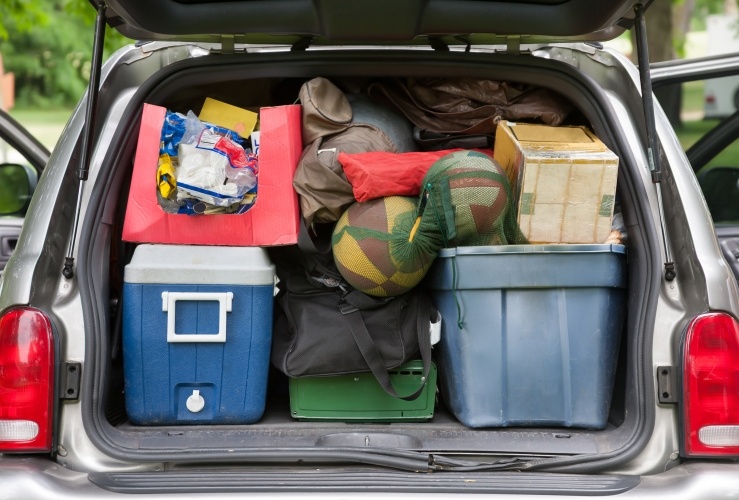If you're planning a road trip, it's worth sparing some thought for how you will load your car. It can be tempting to over-prepare and bring along items that are far from essential. Over-loading your vehicle may, in some circumstances, attract the unwanted attention of the police. You could face a fine of £300 and three penalty points on your licence.
Those heading off for a few days camping in the Great British Outdoors often take along more things than they really need. Perhaps the challenges of the elements prompt over-caution.
Those unfamiliar with the letter of the law sometimes think that carrying a heavy load is acceptable if the view through the rear window remains unobstructed. But being unable to see out your rear window is not in itself illegal - think of all the lorries and vans with no rear view at all.

Not all motorists are familiar with the load limits of their vehicle. Exceeding the manufacturer's load limit can put serious strain on the vehicle and may mean that your insurance is not valid.
The maximum allowed weight for your vehicle should be detailed in the manual - this will include passengers and other items you load.
The limits for small hatchbacks may be lower than you think, with many limited to around 500kg.
Even larger vehicles can have surprisingly modest payloads. A premium 4x4 with passengers in all seats may reach the payload before any other items are loaded.
If all your seats will be filled and you need extra space for luggage, you might consider investing in a trailer. A BMW X3, for example, can tow a braked trailer of up to 2,400kg, and an unbraked trailer of up to 750kg. Once you are towing, you need to be aware of the “maximum authorised mass”, normally considerably higher than the payload.




